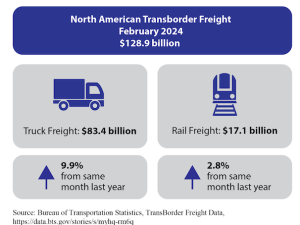Tanzania to spend $14 bln on railways, eyes regional hub status
By: Reuters | Mar 30 2015 at 12:38 PM | Intermodal
Tanzania plans to spend $14.2 billion to construct a new rail network in the next five years financed with commercial loans, the transport minister said, as the country aims to become a regional transport hub.
Tanzania, like its neighbour Kenya, wants to profit from its long coastline and upgrade existing rickety railways and roads to serve growing economies in the land-locked heart of Africa.
Oil discoveries in Kenya and Uganda and gas finds in Tanzania have turned east Africa into an exploration hotspot for oil firms but transport infrastructure in those countries has suffered from decades of under-investment.
“This will be the single biggest project ever to be implemented by the Tanzanian government since our country’s independence,” Transport Minister Samuel Sitta said in a statement issued on Sunday, referring to the year 1961.
Sitta said the railway network would meet the huge demand for the transportation of cargo to land-locked neighbouring countries, including the Democratic Republic of the Congo (DRC), Rwanda, Burundi and Uganda as well as domestic needs.
The projects include constructing a 2,561 km (1,536 miles) standard gauge railway connecting the port at the commercial capital of Dar es Salaam to Tanzania’s land-locked neighbours, Rwanda and Burundi at a cost of $7.6 billion, Sitta said.
Two additional lines, to cost $6.6 billion, would connect Dar es Salaam to the coal, iron ore and soda ash mining areas in the south and northern parts of the country, he said.
Sitta said the projects would be financed by commercial loans from a consortium of banks under a 20-year repayment period, though he did not name the banks.
The government has named Rothschild as financial advisor to help secure the financing.
However, Kenya, East Africa’s biggest economy, is already building a multi-billion-dollar standard gauge rail line, backed by China, to run from Mombasa to the border with Uganda, aimed at cutting the hefty costs of trade in the region.
“We are in competition at all times with the Mombasa port ... its a competitive business, so we need to be efficient,” Sitta said.







